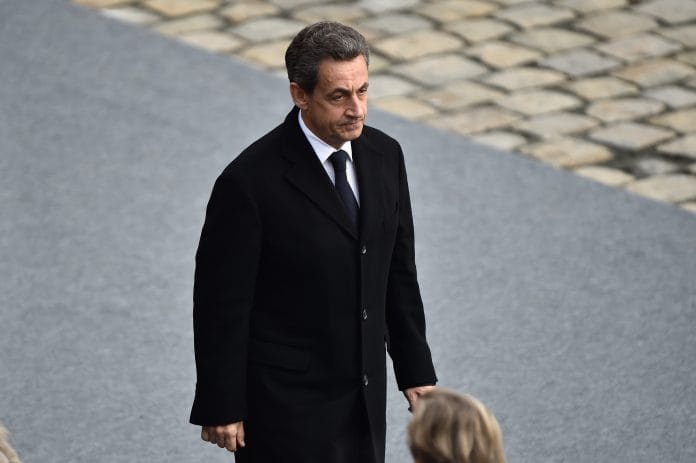Nicolas Sarkozy has been placed under formal investigation for illegal campaign funding from the Libyan dictator Muammar Gaddafi. Mark Zuckerberg admits to Facebook’s data breach into what has now turned into the Cambridge Analytica scandal, and concerns about the transitional period for Brexit being too short is affecting the entire negotiation process.
Another election scandal
Nicolas Sarkozy, former French president, allegedly accepted bribes as illegal campaign financing, and misappropriated Libyan state funds. “Sarkozy, France’s rightwing president from 2007 to 2012, was released on bail on Wednesday after two days of questioning in police custody by investigators specialising in corruption, money laundering and tax evasion as part of an inquiry into whether Gaddafi and others in Libya illegally financed his successful election campaign in 2007,” writes Angelique Chrisafis in The Guardian.
“The investigation is potentially France’s most explosive political financing scandal in decades. The allegations of illegal campaign funding by a foreign dictator on a massive scale are unprecedented and are the most serious accusations levelled at a former president in recent French history. Sarkozy has repeatedly denied the allegations, dismissing the claims as “grotesque”,” she writes.
Being put under formal investigation in French law means that there is “serious or consistent evidence” that indicates involvement in the crime. However, investigations can be dropped without a trial being held.
“The two-day questioning is the first time Sarkozy has faced police in the case. A French inquiry into alleged illegal campaign funding from Libya was opened in 2013. The inquiry did not name anyone as a suspect, and has centred on claims of corruption, influence trafficking, forgery, abuse of public funds and money laundering.”
Sarkozy had until now refused to respond to summons for questioning in the case.
Controlling the internet’s bloodstream
Cambridge Analytica is an election consulting firm that has rocketed to infamy, having worked for Donald Trump, the Brexit campaign, and political parties in Kenya. The CEO Alexander Nix and the managing director Mark Turnbull were caught in a sting operation, admitting to using private data and human emotions as manipulative quantities to consult for electoral campaigns.
“But even if you doubt whether the company has learned anything new about human nature, you can still observe that Cambridge Analytica, like every other political consultancy in existence, does have access to a new kind of delivery system: the amazing marketing tool known as Facebook,” writes Anne Applebaum in the Washington Post.
Saying that the company used Facebook both legally and illegally, she writes that the company “surreptitiously gained access to the Facebook data of 50 million people through a fake research project and used it to fine-tune its delivery of fear and smears.”
“Worse, Facebook knew about this purported violation of its platform policies in 2015, yet chose not to suspend the company from the network until the story was exposed this month,” Applebaum writes.
Mark Zuckerberg made a public statement on Tuesday, admitting to the data breach. He pledged to protect user data and make it harder for other apps and firms to harvest user information.
“But the scandal that has erupted over this reported breach of contract disguises the larger issue: Even when operating legally, the company’s advertising would have been opaque to the people who received it. Political dirty tricks haven’t changed much since the Renaissance, but the delivery method has fundamentally changed the game. Political persuasion that used to take place in the open, in Congress or on the hustings. Now it is covert.”
“Covert political advertising makes a mockery of election laws in every country that has them,” Applebaum writes.
A hurried transition
The EU’s Brexit negotiator, Michel Barnier, and the the British Brexit secretary announced a transition deal on March 19. “It was hard even for the ebullient Mr Davis to hide the fact that Britain had agreed to a “status quo” transition period, in which it will maintain most obligations to the EU while losing its voting rights. At least business was pleased that there will be no cliff-edge exit next March—assuming, that is, the two sides are able to reach some kind of Brexit deal,” writes The Economist.
“One awkward concession concerned fish. Many Brexiteers say they were promised that Britain would take back full control of fisheries next March. Even Michael Gove, the minister in charge, admitted to being disappointed that this has proved impossible. Britain will now stay in the EU’s common fisheries policy until the start of 2021. Scottish Tories are especially upset. Several said they could not sell such a betrayal to their constituents.”
“For all their protests, including sending a fishing boat up the Thames to Parliament, Mrs May is bound to accept the transition at the EU summit that was meeting as we went to press. She has no choice. Fisheries is too small an industry to be worth jeopardising a future Brexit deal. Just as in 1973, when Britain first joined the club, fishing is likely to be sacrificed for the greater good, however loudly trawlermen howl.”
The real concern isn’t fisheries, though. It’s that the transition period is just 21 months, instead of a deal that would ideally last two years. “Trade experts doubt that a comprehensive trade deal of the sort that Mrs May wants can be negotiated, let alone ratified, that quickly. And the text of the transitional deal leaves it unclear whether an extension will be legally possible, let alone politically so.”
“Time, or rather the lack of it, has become one of the most pressing concerns about Brexit.”






